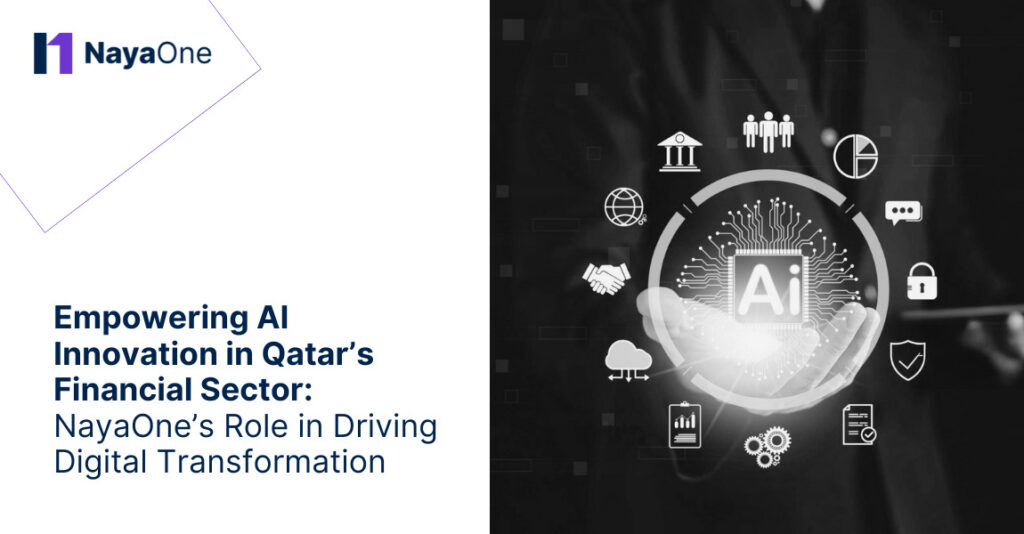Executive Summary
Qatar is positioning itself as a regional hub for artificial intelligence (AI) innovation, aligning with its National Vision 2030 to build a knowledge-based economy. The country’s AI Strategy emphasises leveraging AI across sectors while balancing rapid technological progress with ethical governance. This report explores Qatar’s AI landscape, its economic impact, and how leaders can drive AI-enabled growth.
AI is no longer optional – it’s an economic game-changer. By 2030, AI could contribute $16 – 18 billion to Qatar’s economy, boosting labour productivity by 15% and reshaping industries from finance and healthcare to energy and smart cities. However, global AI leaders- like the UAE, USA, and China – are moving fast.
Will Qatar lead or lag?
The Opportunity: Qatar’s AI Advantage
Qatar’s commitment to AI is exemplified by the establishment of the Artificial Intelligence Committee under the Ministry of Communications and Information Technology (MCIT). This committee is responsible for implementing the Qatar Artificial Intelligence Strategy, coordinating AI initiatives across government entities, and fostering the development of skilled AI professionals. (MCIT)
- Qatar has world-class digital infrastructure with 97% broadband penetration, nationwide 5G, and a $200B investment pipeline in digital transformation initiatives.
- AI is projected to add 8% to Qatar’s GDP - on par with global AI front-runners.
- The AI market in Qatar is expected to grow at a 26% CAGR by 2028, driven by government funding, enterprise adoption, and fintech innovation.
- AI adoption rates in finance and government exceed global averages, with 75% of financial institutions already integrating AI in some form.
Key AI Use Cases Driving Growth:
- AI-driven risk scoring models for real-time credit risk, market risk, and fraud detection.
- AI-powered chatbots and voice assistants (in Arabic and English) for retail and corporate banking.
- Machine learning models that analyse market trends and customer behaviour to recommend personalised investment strategies.
- AI-driven alternative credit scoring using transactional, behavioural, and social data.
- Shariah-compliant investment screening using natural language processing to analyse and categorise businesses and transactions.
- Real-time AI systems to detect unusual patterns and prevent identity theft or cyberattacks in digital banking platforms.
- AI for macroeconomic modeling, real-time monitoring of financial institutions, and regulatory sandbox simulations.
AI adoption rates in finance and government exceed global averages, with 75% of financial institutions already integrating AI in some form.
The Competitive Landscape: Where Qatar Stands
As AI adoption accelerates globally, Qatar finds itself at a critical juncture. While the nation has made significant strides in AI readiness and investment, regional and international competition is intensifying. The UAE, Saudi Arabia, and leading global economies are scaling AI initiatives rapidly, investing billions in AI-driven industries and regulatory frameworks. To maintain and strengthen its position, Qatar must assess where it stands today and identify key areas for growth. This section benchmarks Qatar’s AI development against regional and global leaders, highlighting the strategic opportunities and challenges ahead.
To bolster its position in the global AI arena, Qatar has launched the GovAI Program, a strategic partnership aimed at accelerating AI adoption across government entities. The program focuses on supporting innovation, enhancing digital infrastructure, and improving public services through AI solutions.
- Qatar ranks 3rd in AI readiness in MENA, after UAE and Israel, with a Government AI Readiness score of 62.4, outperforming Saudi Arabia (62.0).
- The UAE aims for AI to contribute 14% of GDP by 2030 - Qatar must accelerate to stay competitive.
- Saudi Arabia is investing over $30B in AI, integrating AI into energy, fintech, and smart city projects.
- China, US, and EU are leading in AI regulation, investment, and talent development, with China investing over $150B in AI research and the US AI sector securing $70B in funding in 2023 alone.
Lesson from Global Leaders: AI investment must be strategic and continuous – not one-off initiatives. Qatar needs sustained funding and a dedicated AI ministry, as seen in the UAE.
The Challenge: What’s Holding Qatar Back?
Despite Qatar’s strong AI ambitions and growing investments, several critical challenges must be addressed to fully capitalise on AI’s potential. Key barriers include a shortage of skilled AI professionals, regulatory uncertainties slowing AI adoption, and limited access to high-quality data. Additionally, intense competition from regional AI powerhouses like the UAE and Saudi Arabia threatens to outpace Qatar’s progress. Addressing these challenges proactively will be essential for ensuring that Qatar remains a leader in AI-driven economic transformation.
Recognising the need for advanced digital skills, MCIT has introduced the Digital Skills Framework initiative. This national program is designed to empower individuals and organisations with essential digital competencies, thereby supporting Qatar’s digital transformation and addressing the talent gap in the AI sector. (MCIT)
- Talent Gap: Qatar produces only 1 AI specialist per 100,000 people, compared to Singapore’s 5 per 100,000. The demand for AI talent is expected to exceed supply by 40% by 2026.
- AI Adoption Speed: 55% of Qatari businesses cite unclear AI regulations and compliance risks as barriers to adoption.
- Data Accessibility: AI thrives on data, but 84% of Qatari firms lack real-time access to high-quality datasets, slowing AI deployment.
Global Competition: The UAE and Saudi Arabia are aggressively investing in AI sandboxes, AI megaprojects, and startup ecosystems, potentially outpacing Qatar’s AI development if action is not taken.
The Solution: How Qatar Can Win in AI
To solidify its position as a leader in AI-driven innovation, Qatar must take decisive action to address its challenges and leverage its strengths. The nation has the infrastructure, investment potential, and regulatory vision, but success will require a coordinated strategy. By investing in AI talent, strengthening governance frameworks, accelerating adoption across industries, and fostering public-private partnerships, Qatar can unlock AI’s full potential and drive sustainable economic growth.
1. Scale AI Talent & Innovation
- Expand AI education programs to train 50,000 AI specialists by 2030.
- Launch AI bootcamps and upskilling initiatives to reduce the AI skills gap by 25% within 5 years.
- Introduce AI visas to attract global AI experts and startups.
2. Strengthen AI Regulations & Governance
- Establish a dedicated AI regulatory authority to provide compliance clarity.
- Expand AI regulatory sandboxes to test AI-driven financial and energy solutions in a controlled environment.
- Implement AI transparency standards to ensure ethical and bias-free AI use.
3. Accelerate AI Adoption Across Industries
- Encourage banks and enterprises to integrate AI in risk management, lending, and customer service, targeting 80% adoption by 2027.
- Scale AI-powered healthcare innovations, aiming for 40% of medical diagnostics to be AI-assisted by 2028.
- Develop AI-powered smart city infrastructure to optimise traffic, security, and utilities, reducing public service costs by 10% annually.
4. Expand Public-Private Partnerships
- Strengthen partnerships between banks, AI startups, and regulators to fast-track AI solutions.
- Enable cross-border AI collaboration with top AI hubs like Singapore, UK, and the EU.
To know more about NayaOne‘s AI Innovation work, get in contact with our team that will be able to provide use cases and case studies upon request.





